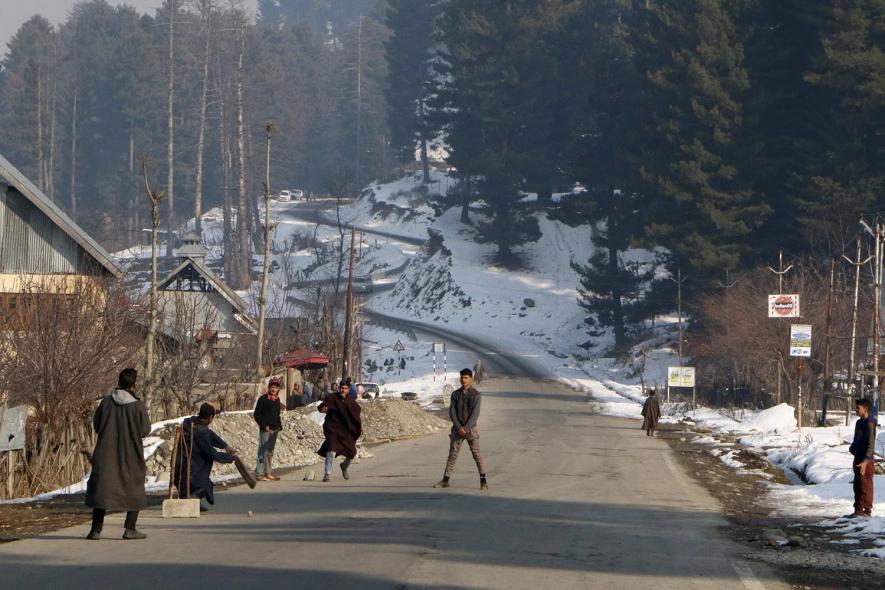UT Status to J&K Setback to Federal Experiment

Representational image. | Image Courtesy: Kamran Yousuf
With the kind of numbers that the Bharatiya Janata Party (BJP) enjoys in the Lok Sabha and its clever floor management in the Rajya Sabha, it seemed only a matter of time before the Prime Minister Narendra Modi and Home Minister Amit Shah-led government would introduce a legislation to end Article 370. The promise to do so has been its foundational plank from its Bharatiya Jana Sangh days.
However, what was surprising is the hasty manner in which on 5 August a presidential order was introduced to scrap Article 370 by making redundant the provisions that provided the state of Jammu and Kashmir (J&K) special status in the Indian Constitution. That the order was accompanied with an amendment bill dismembering the state, once the largest princely state in the subcontinent, to create two union territories, makes the whole exercise astounding.
Besides ignoring parliamentary niceties of allowing a political debate, discussion, informed consent and dissent; there are numerous legal and constitutional questions that this move has raised. Some of these questions are old and some new: Can a presidential order make changes that result in such a drastic alteration of the Constitution? What exactly is the balance of executive and legislature in our parliamentary system? How much independence can the central government exercise in changing the federal structure of the country, especially in those decisions that make the federation asymmetrical, and so on.
As these questions are debated and discussed, let us see what consequences the government’s decision may have on the principles and the people that it purports to have acted in favour of.
Article 370 weakened Union of India
First, it was argued that the presence of Article 370 weakened the Indian union. That a separate flag and Constitution for Kashmir challenged the idea of what makes a united and uniform nation. The fact is that asymmetry is basic to the Indian federal experience, whether it is the case of Nagaland, Meghalaya, or even Maharashtra and Gujarat. Also, there is plenty of evidence to suggest that such asymmetry—in keeping with the history, culture and geography of the region concerned—can ensure political representation, better and more participative governance, and therefore, less disaffection and reduction in chances of secessionist politics. India has been advocating exactly this in its immediate neighbourhood—in Nepal and Sri Lanka.
Women’s Rights in Kashmir and restrictions on outsiders
Further, the contention was that by restricting outsiders from enjoying similar rights as J&K’s citizens through Article 35A, Article 370 was exclusionary. It was argued that this was to the detriment of the citizens of the rest of the country. Its presence especially militated against the professed rights of its women citizens who married non-citizens of the state. It is true that outsiders could not buy land or did not have share in the state but such provisions are present in other parts of the country as well—especially in areas covered under the Fifth and Sixth Schedules.
In fact, many parties that voted with BJP in the Parliament have been the biggest proponents of nativist politics in India. The raison d’être of parties such as the Shiv Sena and the Assam Gana Parishad (AGP) is protecting the rights of their “sons of the soil” against outsiders.
When it came to rights of women, the argument was on a solid footing. The fact that until the last moment Kashmir-based mainstream political parties refused to agree to common-sense changes in laws to make them gender-neutral is something that they will now rue for quite some time.
Industry and business interests in Kashmir
Another suggestion was that Article 370 did not allow businesses to come to the state and prevented its industrialisation. This, in turn, was said to be hampering job creation and the economic development of the state. That might be true but I would argue that this was as much a function of Article 370 as it was of the political conflict engulfing the state since the last thirty years. ‘Ease of business’ requires relative peace and calm for investors to be interested in a region.
Indeed, industries could be set up even under Article 370 by leasing land from the state, just like land can be leased out to hoteliers in Himachal Pradesh. There already is industrial investment in the violence-free areas of Jammu.
UT status to stop discrimination against Ladakh and Jammu
A significant argument that was made against Article 370 regarding J&K was that it led to discrimination of non-Kashmiri regions of the state by Kashmir. The truth is that there was nothing in the Article itself that mandated such discrimination. It was the manner in which politics played out in the state that resulted in uneven development, unequal distribution of political power and consequent feelings of discrimination in the Ladakh and Jammu regions.
The most vocal opponents of the Article and proponents of its abrogation were the people of the Hindu-majority areas of the state. Indeed, the photographs published in the media showing jubilant men and women celebrating the government’s decision are from Jammu. But have the Hindu residents of Jammu really benefitted from the removal of special status and its bifurcation? While Ladakh has been separated from Jammu and Kashmir altogether, the two regions are still tied together.
What provisions will be put be in place to ensure that the power balance in the state is equitable? With the state being made into a Union Territory, how is the demand for more political power to Jammu being addressed? In fact, what has happened is exactly the opposite. Direct rule by the Centre—exercised essentially by bureaucratic machinery—neither gives adequate political representation nor does it ensure participative governance. The whole exercise has disenfranchised and disempowered just not Kashmir but also Jammu.
These were the arguments that the Home Minister, Amit Shah, has made in Parliament in favour of scrapping Article 370 and bifurcating the state. The “objects and reasons” introducing the J&K Reorganisation Bill state that making Ladakh a Union Territory fulfils a long-standing aspiration of its people. And that the internal security threat caused by cross-border terrorism requires that Jammu and Kashmir be made a separate Union Territory.
The recognition of Ladakh’s separate identity as a Union Territory, not weighed down by conflict that afflicts the rest of the state, can stand ground despite the fact that the demand did not have much support in the Kargil district. We will have to see how that pans out.
However, the argument to make J&K a Union Territory because of security reasons does not stand scrutiny. The whole Kashmir valley—the epicentre of the conflict—is garrisoned at present because the government expects a violent reaction. How does that square up with the claim that the government has reduced security risks? How disaffection in the Valley is going to be addressed is the question. How being a Union Territory will help address the increasing radicalisation of young people in the region—something everybody is worried about—is the other question.
Indeed, this quick look suggests that even though a lot of thought was put into figuring out the loopholes through which Article 370 could be invalidated, not much thought was put into the broader repercussions—for Jammu, Kashmir, Ladakh and the whole country—of bifurcating the state into two Union Territories.
Pushing the state legislature, especially when the BJP was in power, to pass gender-neutral laws, to give equal citizenship rights to women and other disenfranchised sections in the state, and put mechanisms in place to address regional imbalances, would have been easier, less disruptive, and more conducive in facilitating peace in the region.
Essentially, in J&K, the conflict continues and threat of violence is still unabated. In India, a tremendous setback has been dealt to its federal experiment with far-reaching consequences for state-centre relations.
Ellora Puri teaches political science at University of Jammu.
Get the latest reports & analysis with people's perspective on Protests, movements & deep analytical videos, discussions of the current affairs in your Telegram app. Subscribe to NewsClick's Telegram channel & get Real-Time updates on stories, as they get published on our website.
























